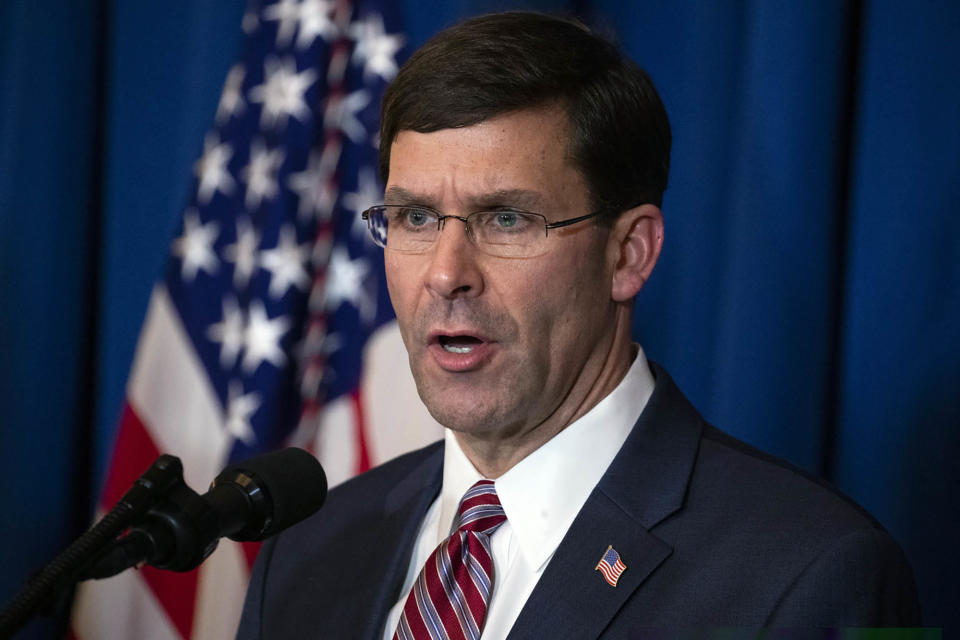Joint Chiefs chairman: Iran intended to kill American troops in missile attacks
Joint Chiefs Chairman Gen. Mark Milley said he believes Iran’s attacks on air bases in Iraq on Wednesday were intended to kill Americans and that advance intelligence enabled troops to take cover.
Of the 16 Iranian short-range ballistic missiles that were fired across the border, one struck a base near the northern Iraqi city of Irbil, while 11 struck al-Asad air base in the western desert, where hundreds of U.S. and coalition troops are located, Milley told reporters at the Pentagon.
The missiles were fired from three sites inside Iran that he declined to identify.
But where the missiles exploded within the base perimeter suggests they were intended to kill U.S. personnel, he said. “The points of impact were close enough to personnel and equipment and so on and so forth, I believe, based on what I saw and what I know, is that they were intended to cause structural damage, destroy vehicles and equipment and aircraft, and to kill personnel,” Milley said.
Some news reports earlier in the day suggested that the Pentagon believed Iran deliberately avoided harming U.S. troops.
The absence of casualties “has more to do with the defensive techniques our forces used than it does with intent,” Milley added. “Al-Asad is a big base. They put 11 large rockets with 1,000-pound, 2,000-pound warheads in it, but we took sufficient defensive measures."
Damage at the base was confined to “tentage, taxiways, the parking lot, a damaged helicopter, things like that. Nothing that I would describe as major,” Defense Secretary Mark Esper added. “No friendly casualties whether they’re U.S., coalition, contractor, etc.”

Esper also said he could not predict whether Iran will make other attempts to retaliate for the U.S. drone attack that killed Iranian paramilitary leader Maj. Gen. Qassem Soleimani last week.
"I believe that we have restored a level of deterrence … but we will see,” Esper said.
Added Milley: “Part of our job is to create space for diplomacy, and there may or may not be an opportunity for that right now."
But he said U.S. military leaders “fully expect Shia militia groups to conduct terrorist operations against U.S. forces."
Esper and Milley said they have not yet reviewed intelligence that might shed light on the crash of a Ukrainian airliner taking off from Tehran airport hours after the missile attacks.

